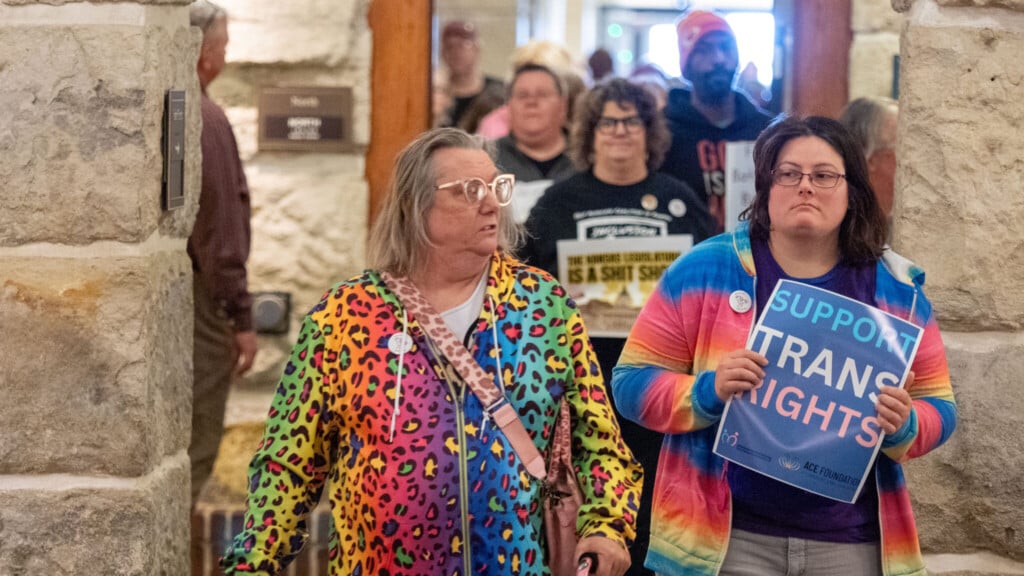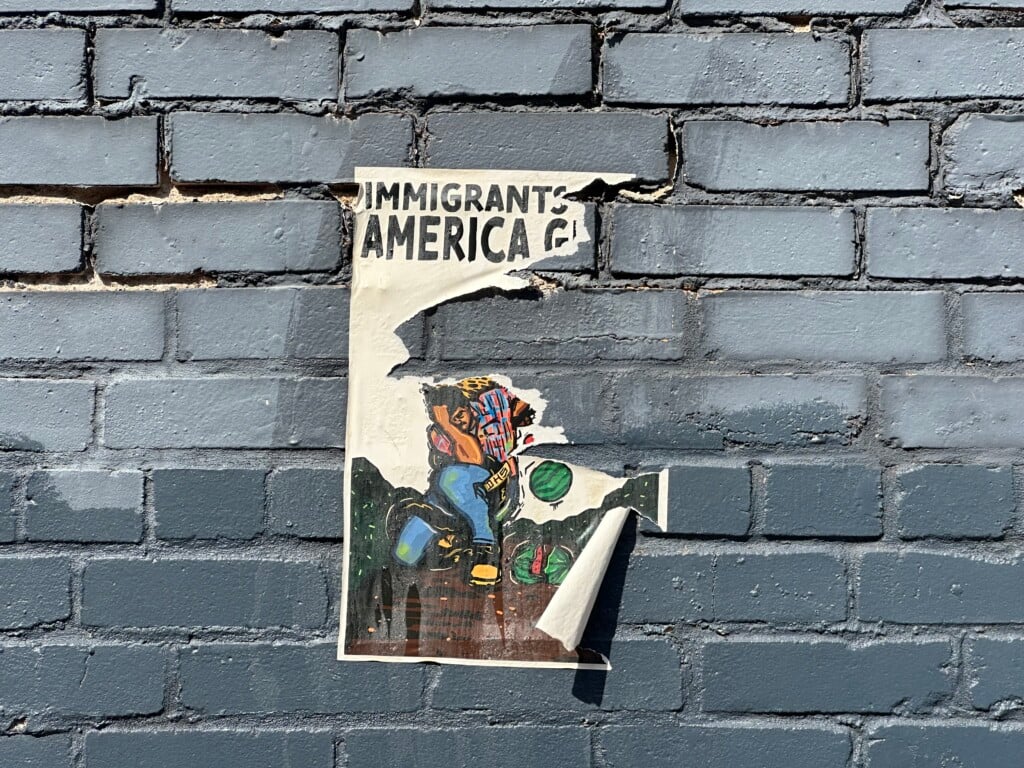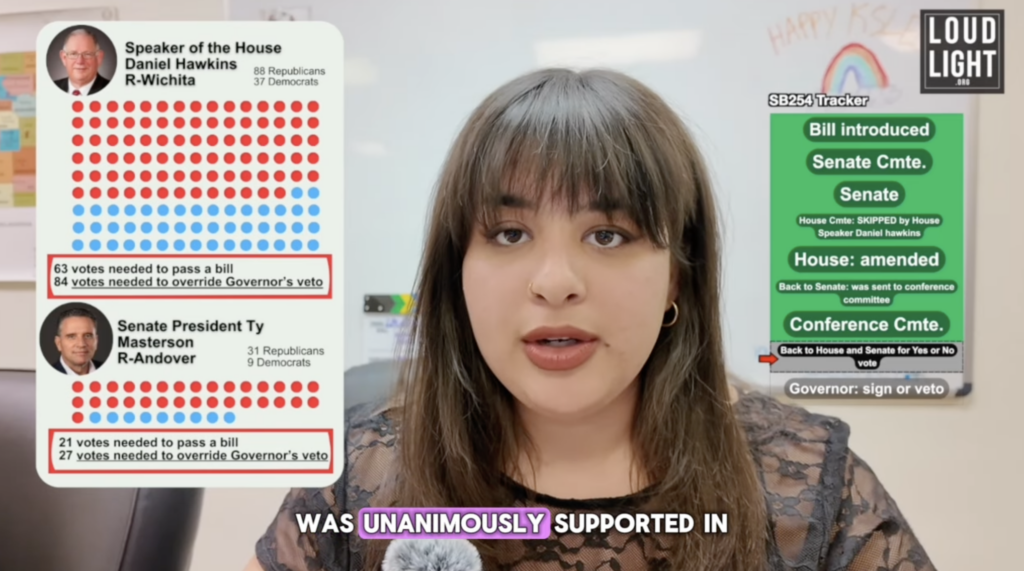Mayor Quinton Lucas condemns Amendment 4’s increased funding to state-controlled KCPD
Lucas asks, “Where’s the money? Where’s the beef?”

KCPD in the rain. // August 13, 2024 social media post by KCPD
Amendment 4 requires Kansas City to shovel millions of more tax dollars into the KC Police Department—a police force that is only accountable to the Missouri governor. Barring the clear violation of local control Kansas City lacks over the KCPD, increasing police funding seldom results in lower rates of crime. Mayor Quinton Lucas is concerned.
In the weeks since the Missouri primary election, Kansas City Mayor Quinton Lucas has gone public with his disdain for statewide voters adopting the ballot measure Amendment 4. Results of the August six election saw 51 percent of voters agreeing to increase funding for the police in Kansas City. Opposing the measure, roughly 48 percent of state voters chose to vote against it.
Why the controversy? KCPD is the only local law enforcement agency in the state of Missouri that is subject to the oversight of the state government. While police departments in cities like Springfield or St. Louis are accountable to local government, KCPD relies on a board of five commissioners. Four of the commissioners are appointed by the governor and are subject to approval by the Republican-controlled Missouri State Senate. The mayor of Kansas City is the fifth member of the board—that being Mayor Lucas, a Democrat.
Amendment 4 is a constitutional amendment referred to voters by the state legislature. It requires the minimum funding for a police force established by a state board of police commissioners to increase by 2027. This specifically targets Kansas City. Lawmakers proposed an increase of funding from 20 percent of Kansas City’s budget to 25 percent of their budget. This was initially introduced in the state legislature in 2022 and referred to voters. The vote was overwhelmingly in favor of the measure in 2022, but Mayor Lucas sued to block the law. It wasn’t until earlier this year that the Missouri Supreme Court ruled that the ballot question “actually misled voters.” A redo election was ordered, which brings us to the results realized on August 6—voter approval.
Mayor Lucas and local activists maintain that Amendment 4 will cost the city millions of dollars. In a column for the Springfield News-Leader published on July 28, Lucas explained to statewide voters what is at stake for Kansas Citians. Since the measure increases minimum funding to the police department from 20 percent to 25 percent, this money has to come from general revenue.
He argued that this would cost taxpayers in Kansas City $40 million more dollars annually. This is “money that could otherwise support our firefighters, maintain our parks, or repair our roads,” Lucas wrote. He additionally noted that since he became mayor in 2019, local police funding in Kansas City already increased by 20 percent—a sum that included pay raises for police officers.
“What [Amendment 4] means for us when they direct our budgeting, other than the fact that it is unfair, it is arbitrary that it is applied to only Kansas City, and it hasn’t improved a public safety benefit for a city that has experienced its highest ever homicide rate in two of its last four years in its history—all those things make it clear [the system] doesn’t work,” Mayor Lucas told The Pitch in an interview. “The current system doesn’t work. We need more accountability, not less… We need more innovations in policing, not less.” Lucas explained that he doesn’t believe an increase in funding for the KCPD will be useful in countering rising violent crime. A body of evidence shows that increasing police funding has no major impact on reducing local crime rates. One of the tropes used during the campaign for Amendment 4 was the need to fund the KCPD while skewing the increase in homicide rates in Kansas City to present the Lucas administration and the Kansas City Council as far-left partisans who care not for the safety of their constituents.

Kansas City Mayor Quinton Lucas speaks at a vaccine clinic at the Morning Star Community Center in Kansas City. Lucas allegedly raised his voice and urged an activist to withdraw a Missouri Sunshine Law request, a lawsuit claims. // Photo Courtesy of Missouri Governor’s Office)
State Sen. Tony Luetkemeyer, R-Parkville, proposed Amendment 4 and its legislative companion in 2022. He wrote for The Kansas City Star on July 2 urging voters to adopt Amendment 4. The senator, representing the 34th Senatorial District north of Kansas City proper and the Northlands, called the mayor and the majority of the council “radical” when it came to efforts to reallocate funds from the appropriation to the KCPD to other agencies and programs in need.
“I hope you will join me in standing with the brave men and women of law enforcement and voting yes on Amendment 4,” wrote Sen. Luetkemeyer. He relied on alarmist rhetoric characterizing Lucas as wanting to “defund” the police. Of Luetkemeyer’s own omissions in his column, the city council has been doing the complete opposite. For example, Luetkemeyer points to how Missouri’s state constitution requires Kansas City to devote 20 percent of its budget to the KCPD.
“But the city has historically funded the department at around 25 [percent],” he wrote, which undermines the supposed need for Amendment 4’s new requirements. Referring to the cuts in police funding, which occurred in 2021, the senator insisted the city took steps to gut the KCPD to “devastating” results on safety. Instead, in the words of Luetkemeyer, those monies were earmarked for what he called “ill-defined community programs controlled by bureaucrats.” It’s about controlling the largest police force in the state of Missouri, also according to Luetkemeyer’s words in his op-ed.
“The time has come to stop city politicians’ attempts to play games with the police budget and prevent future attempts of defunding, the police force,” Sen. Luetkemeyer concluded. For Mayor Lucas, this is at the heart of the debate: the city’s right to assert local control over its police force and to provide the funding to back programs that could prevent a person’s turn to a life of crime.
Amendment 4 “freezes our ability to have resources to address many of the things that are the very rationale for how people get involved in criminal activity at all,” Lucas continued in his interview with The Pitch. “We cannot invest, enough, in low-barrier homeless shelters in our city. We can’t expand our substantial investment in housing and fighting homelessness.”
He added that with Amendment 4, the funding for the police from Kansas City’s general fund is expected to grow even higher, adding that the requirement for 25 percent of general revenues that are earmarked for KCPD is, in actuality, higher. Mayor Lucas says, “It actually will be almost 40 percent of the discretionary funds we have each year being spent at KCPD. I think it crowds out our ability to spend in other important areas… People always tell us, ‘Why don’t you do more on prevention all the time… Why don’t you build more transitional housing in Kansas City?’”
Mayor Lucas then asked rhetorically, “Where’s the money? Where’s the beef?”
“And I think that is the issue for us long-term. If we have such direction on how we spend a huge amount each day, then we don’t have the flexibility to address issues like a modern American city would,” he says. “We don’t have the cash, because, each year, the cash is largely spent.”
Lucas concluded the interview by stating that he doesn’t have any issue with how certain city monies are spent. He has an issue with being directed by a state government that thinks they know better than the elected officials who govern Kansas City. “I don’t have a problem with the money ending up there as much as I have a problem with us not having any say on how it’s done collaboratively,” he says, noting that he has a duty to the people of Kansas City while the other four members of the board of commissioners at KCPD is only accountable to the KCPD.
“I think this will forever hold Kansas City back.”





